Table of contents
Key Takeaways
Menopause is something that many people think of as a women-only condition, but do men go through menopause as well? In fact, many men go through something very similar themselves. As we age, it is normal for our bodies and our hormones to make natural changes, leading to menopause for men as well. Let’s break andropause wide open and discuss what it is, why men might experience it, and what the symptoms are.
What Is Male Menopause?
Male menopause or andropause is when there are symptoms associated with the decline of testosterone levels mixed with general ageing. It is called andropause because of the androgen decline in men from late-onset hypogonadism and lower testosterone. Approximately 30% of men 50+ will experience symptoms of andropause or menopause in men, caused by low testosterone levels.
Androgens are another word for sex hormones. Sex hormones are what give men their male characteristics. Androgens control all the secondary sexual characteristics like facial hair growth, bone and muscle growth, and voice change. Testosterone is a man’s main sex hormone mainly affecting semen production, libido, etc, and is made in the testicles.
Male menopause is a made-up term due to the comparable symptoms to female menopause. However, men will not suddenly experience the severe and inevitable drop in androgen production the way women can expect. Male andropause can be slow and happen over time and is not usually solely due to the ageing process.
Duration of Male Menopause (Andropause): How Long Does It Last?
Male menopause, also known as andropause, typically lasts between 15 to 20 years, marking a period of gradual bodily adjustment to decreasing testosterone levels. However, if left untreated, the symptoms of male menopause can persist throughout a man's life due to the continuous decline of testosterone levels over time. This is based on a combination of scientific research and anecdotal evidence, illustrating the significant duration and impact of this phase on men's health.
Causes Of Male Menopause
There can be a few different reasons men can begin to experience a decline in their testosterone and androgen levels. While it might be more common in men over 40, men of all ages can experience these issues and symptoms.
Testicles: Hypogonadism and Testosterone Production
The decline of androgens in men can be caused by hypogonadism. This is when the testicles are not producing as much testosterone as they should be, or once did. This can also be referred to as a gonad deficiency. The less testosterone a man produces will begin to affect their fertility. This is because testosterone is vital for sperm count and healthy sperm motility.
Hypogonadism and the decline in androgens can begin as early as 40 when levels will begin to drop for a lot of men. Some things that can affect a man’s androgen levels include chronic disease, obesity, diabetes, and medication.
Pituitary Gland: The 'Master Gland' and Hormone Regulation
The pituitary gland, or commonly known as the ‘master gland’ is about the size of a pea and is located at the base of the brain. The pituitary gland produces several hormones and controls the thyroid gland and the adrenal glands. The pituitary gland plays an important role in the production of androgens and can be the cause of a man’s andropause symptoms.
If your pituitary gland is the cause for your change in hormones, the most common reason could be a pituitary tumour. These are almost always noncancerous (benign) but they do begin to affect a person’s hormone production. Some symptoms include:
- Weight gain
- Stunted or excessive growth
- High blood pressure
- Low sex drive
- Mood changes
- Vision problems
- Headaches
Hypothalamus: Brain Function and Hormone Signaling
The hypothalamus is a part of the brain that plays a major role in controlling all different types of functions, including the release of hormones from the pituitary gland. Some common conditions that can affect the hypothalamus include tumours or genetic disorders like Kallmann’s syndrome. These conditions can prevent the hypothalamus from sending necessary signals to the pituitary gland. Without the signals from the pituitary gland, the testicles will not begin proper testosterone production.
Symptoms of Andropause
Not every male will experience the decline of androgens as they age, but the symptoms of male menopause for those who do are very real. This is why andropause is often called male menopause, because of how similar the symptoms are to female menopause. If you believe that you are experiencing andropause keep an eye out for these common symptoms:
- Lower libido
- Hot flashes and sweating
- Fatigue
- Depression
- Less body hair
- Reduced bone mass (osteoporosis)
- Reduced muscle strength
- Breast tissue development (gynaecomastia)
- Weaker amount of ejaculate
If you’re on a fertility journey it is important to discuss any concerns or symptoms you might have with your doctor. They can test your hormone levels and assist you in finding the right solution for your body.
Treatment for Andropause
Since male menopause is not something that men must experience, unlike female menopause, many men try to stop it or reverse it. This is usually very important to those who are young and looking to grow their families. Andropause can affect a man’s fertility due to lower sperm count, lower sperm motility and lower libido. There are natural male hormone supplements and testosterone supplements that are designed to reignite a man’s androgen production, libido, and physical performance. There are also different andropause treatment options, such as testosterone replacement therapies.
Many men will want to use a testosterone therapy treatment to try to increase their testosterone levels. However, a recent study on the effects of these treatments in older men showed a small increase in sexual function with testosterone treatment, but no significant improvement in mood, vitality or physical function. It was also found that some older men developed cardiovascular disease after starting testosterone treatment. It is also very important to get your prostate checked before and during testosterone therapy as it can cause prostate cancer to grow.
If you’re looking to naturally boost your testosterone levels, try the male hormone supplement MedTesto from Élan Healthcare. MedTesto is a testosterone supplement that helps men boost libido as well as support emotional, physical, and mental aspects of sexual health and promote testosterone production. Elan Healthcare has a wide range of products designed specifically for fertility and healthy hormone production for both men and women. Whether you’re on a fertility journey or looking to simply improve your androgen levels, visit Elan’s products page to learn more.
Frequently Asked Questions about men Andropause
Question 1: Do men go through menopause?
Answer: Yes, men go through a phase comparable to menopause known as andropause. This occurs due to a gradual decline in testosterone levels leading to various symptoms similar to menopause in women.
Question 2: How long does male menopause last?
Answer: Male menopause, or andropause, typically lasts between 15 to 20 years. If left untreated, symptoms may persist throughout life due to a continuous decline in testosterone levels.
Question 3: What are the signs of male menopause?
Answer: Signs of male menopause include lower libido, hot flashes, fatigue, depression, reduced bone mass, reduced muscle strength, and a weaker amount of ejaculate.
Question 4: Is there such a thing as male menopause?
Answer: Yes, the term "male menopause", or andropause, describes the decline in testosterone levels in men, leading to symptoms similar to those experienced during menopause in women.
References:
1 - Andropause. MedBroadcast.com. Published date unknown.
2 - Male hypogonadism: Symptoms and treatment. By Kumar P, Kumar N, Thakur DS, Patidar A. Published July 2010.
3 - Understanding Pituitary Disorders. Oregon Health & Science University. Published date unknown.
4 - Hypothalamus. You And Your Hormones. Last reviewed Feb 2018.
5 - Kallmann syndrome. Genetic and Rare Diseases Information Center. Last reviewed June 2016.
6 - Effects of Testosterone Treatment in Older Men. By Snyder PJ, Bhasin S, Cunningham GR, Matsumoto AM, Stephens-Shields AJ, Cauley JA, Gill TM, Barrett-Connor E, Swerdloff RS, Wang C, Ensrud KE, Lewis CE. Published Feb 2018.
7 - Androgen deficiency in men. Better Health Channel. Department of Health, State Government of Victoria. Last reviewed Nov 2018.














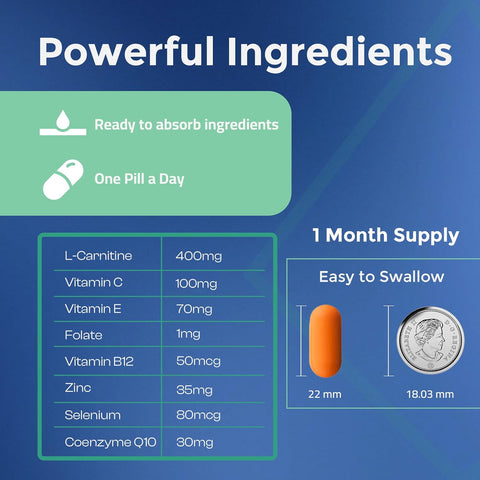
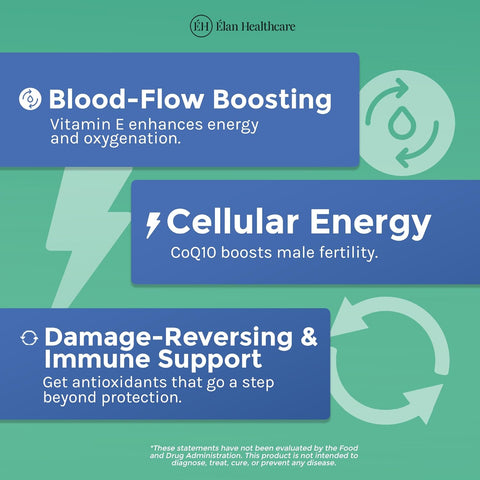
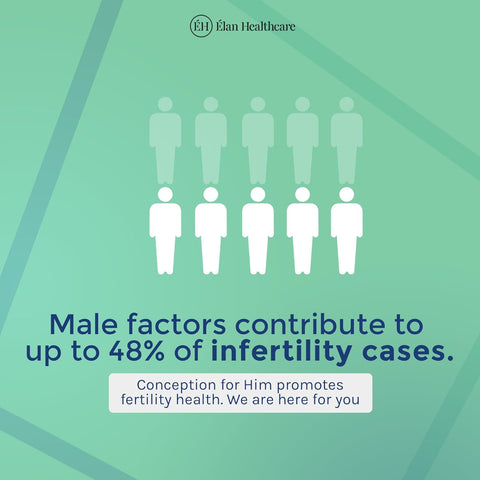


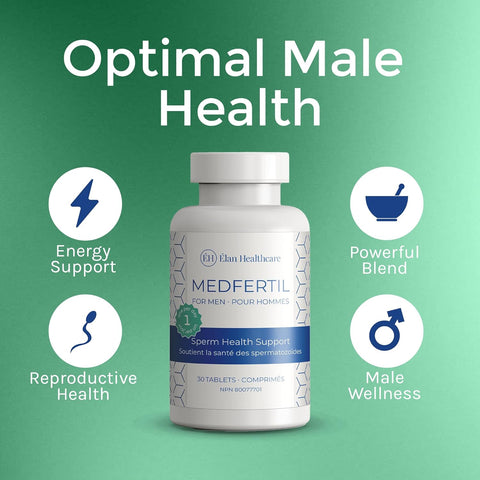

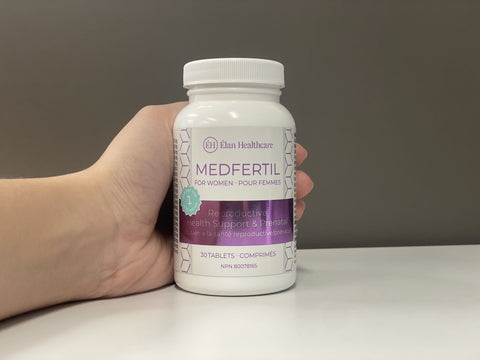
We have 2 comments. Add your voice to the conversation!
Hello and thanks for reading our blog. Please speak with your doctor before using any new medications or supplements. Medtesto is not recommended for persons with high blood pressure.
I take blood pressure medicine and I same too not to ejectila
+ Open to leave a Comment